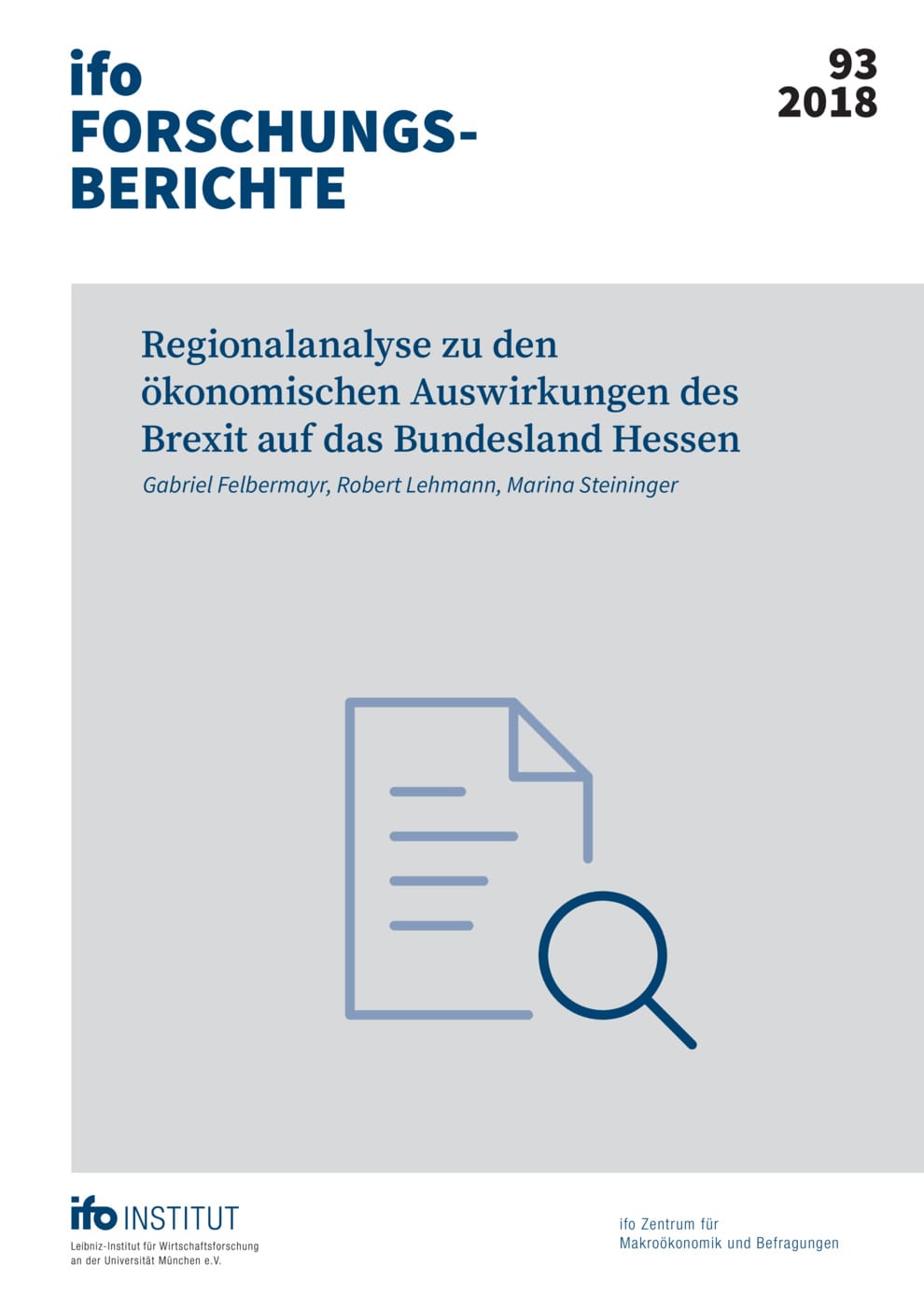Brexit and its Economic Consequences for the German State of Hesse
ifo Institut, München, 2018
ifo Forschungsberichte / 93

In the course of Brexit, Germany’s real GDP will fall compared to the current status quo. The average effect for Germany as a whole, however, masks significant heterogeneities between different sub-national entities such as the German states. The German state of Hesse faces a special situation, as Frankfurt am Main lies at the heart of the German financial sector. In sum, the German state of Hesse and the important metropolitan region of Frankfurt-Rhine-Main should be less heavily impacted by Britain’s exit from the European Union than Germany as a whole. In the case of a “hard Brexit”, Hessen’s price-adjusted gross domestic product (GDP) will be -0.17% lower than in the base scenario (versus Germany: -0.23%). The effects on the metropolitan region will be similar to that on Hessen as a whole. If, on the other hand, a more ambitious free trade agreement were to be reached (“soft Brexit”), the effects on Hessen and its metropolitan region would be -0.08% compared to the baseline (Germany: -0.10%). Hessen stands to be less strongly affected thanks to structural economic differences in its economy. There are two main reasons for this: firstly, the branch that stands to be the most strongly affected by Brexit, namely manufacturing, accounts for a smaller share of added value in Hessen than in Germany as a whole. Secondly, financial, insurance and corporate services provides are traditionally more present in Hessen than in Germany on average. These are the three economic sectors that may even stand to gain from Brexit.